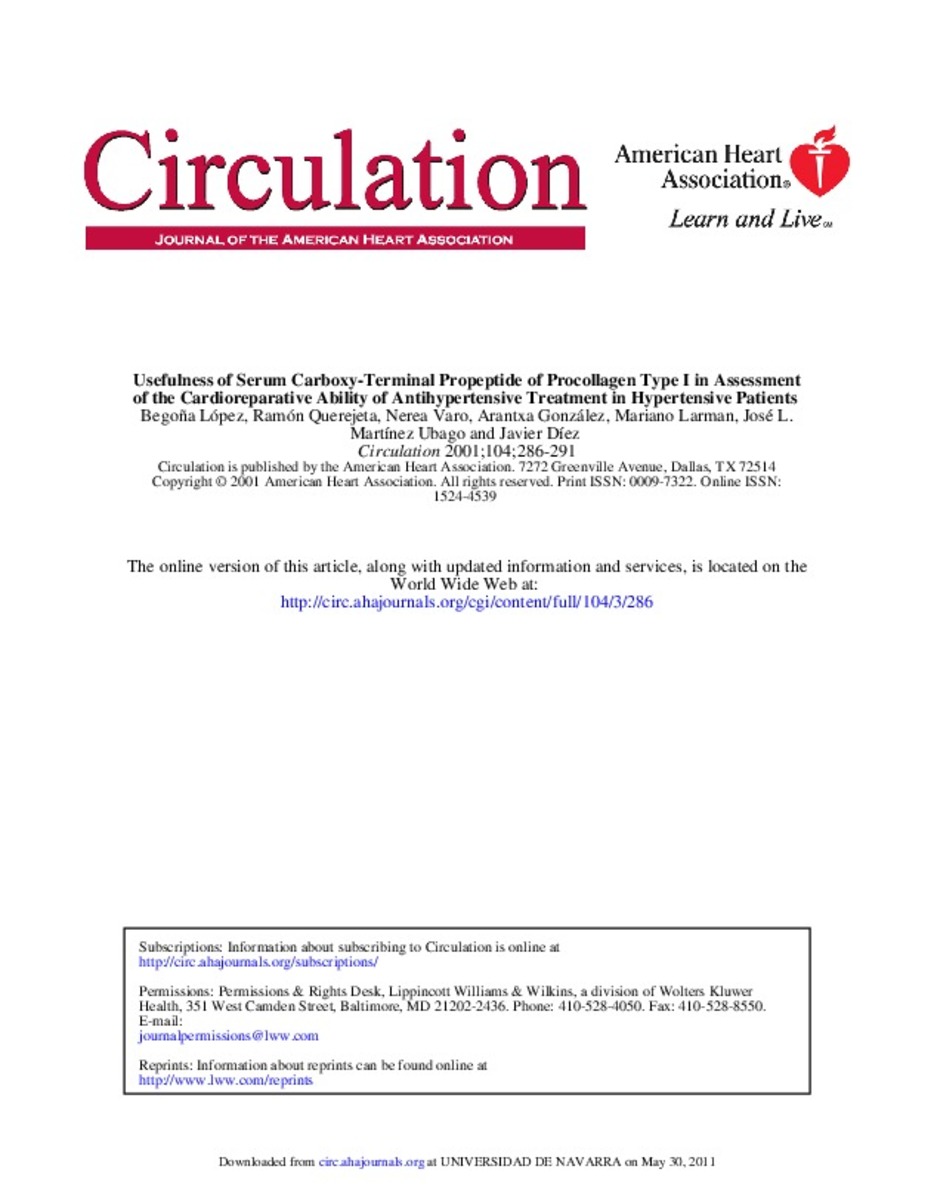Usefulness of serum carboxy-terminal propeptide of procollagen type I in assessment of the cardioreparative ability of antihypertensive treatment in hypertensive patients
Keywords:
Collagen
Hypertension
Myocardium
Peptides
Remodeling
Publisher:
American Heart Association
Citation:
Lopez B, Querejeta R, Varo N, Gonzalez A, Larman M, Martinez Ubago JL, et al. Usefulness of serum carboxy-terminal propeptide of procollagen type I in assessment of the cardioreparative ability of antihypertensive treatment in hypertensive patients. Circulation 2001 Jul 17;104(3):286-291.
Statistics and impact
0 citas en

0 citas en

Items in Dadun are protected by copyright, with all rights reserved, unless otherwise indicated.











